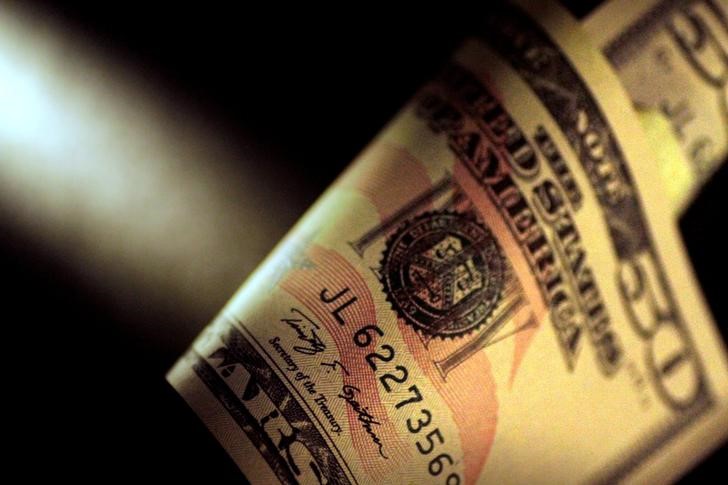By Nichola Saminather
SINGAPORE (Reuters) - The dollar surrendered short-lived gains on Tuesday as concerns about the U.S. economy and politics returned to the fore ahead of a Federal Reserve meeting, while a lack of catalysts kept Asian stocks subdued.
European stocks look set for a stronger open, with financial spreadbetter CMC Markets expecting Britain's FTSE 100 (FTSE) Germany's DAX (GDAXI) and France's CAC 40 (FCHI) to all open about 0.3 percent higher.
The dollar earlier rose on expectations the Fed will signal at a meeting starting later on Tuesday its readiness to begin reducing its bond portfolio at its September meeting.
Also lifting the dollar earlier were strong July manufacturing and services purchasing managers' surveys (PMIs). But then it fell back as investors feared that the surveys would not shake the Fed's cautious approach to monetary policy tightening.
"Those who dared go long the dollar probably didn't see the current conditions as worthy of holding on for too long," said Matt Simpson, senior market analyst at ThinkMarkets in Melbourne.
"Moreover, as technicals, sentiment and fundamentals point lower for the dollar, the expectation of a dull Fed meeting only adds to the reasons to not ‘bottom pick’ the dollar."
The dollar fell 0.1 percent to 110.99 yen
The dollar index (DXY), which tracks the greenback against a basket of six major peers, pulled back a little to 93.919 on Tuesday. It still remained above Monday's low of 93.823, its lowest level since June 2016.
The return of political risk is also weighing on the greenback. Jared Kushner, President Donald Trump's son-in-law and senior advisor, told Senate investigators on Monday he had met with Russian officials four times last year but said he did not collude with Moscow to influence the 2016 U.S. election.
The ongoing probes into Russia's meddling in the election by congressional panels and a Justice Department special counsel, as well as weak U.S. economic data and reduced inflation expectations, have weighed on the dollar for much of the month.
The euro
In stocks, MSCI's broadest index of Asia-Pacific shares outside Japan (MIAPJ0000PUS) edged up less than 0.1 percent, with some markets looking for fresh impetus after hitting multi-year highs in recent weeks and few drivers in the region to guide them.
"Limited moves within global markets may leave Asian markets to chart their own course in the day," said Jingyi Pan, market strategist at IG in Singapore. "It would be no surprise to see markets holding once again for key items into the latter half of the week."
Australian stocks (AXJO) jumped 0.9 percent, clawing back all of Monday's 0.6 percent loss. But Japan's Nikkei (N225) was flat, and South Korea's KOSPI (KS11) retreated 0.3 percent.
China's bluechip CSI 300 index (CSI300) was down 0.2 percent and the Shanghai Composite (SSEC) was little changed. Hong Kong's Hang Seng (HSI) slightly advanced.
Overnight on Wall Street, the Nasdaq (IXIC) set a record high as investors bet on solid earnings from technology companies. But the S&P 500 (SPX) and the Dow (DJI) closed in negative territory, following European stocks (STOXX), which lost 0.2 percent on Monday.
In commodities, oil prices extended their recovery on a pledge by leading OPEC producer Saudi Arabia to cut exports in August to help reduce the global crude glut. Haliburton Co's (N:HAL) executive chairman also said the U.S. shale drilling boom would probably ease next year.
U.S. crude (CLc1) jumped 0.6 percent to $46.63 a barrel, after closing up 1.25 percent on Monday.
Global benchmark Brent (LCOc1) added 0.55 percent to $48.87, extending Monday's 1.1 percent rise.

The moderation in the dollar helped gold pull up <XAU=>, with the precious metal edging up almost 0.1 percent to $1,255.87 an ounce.